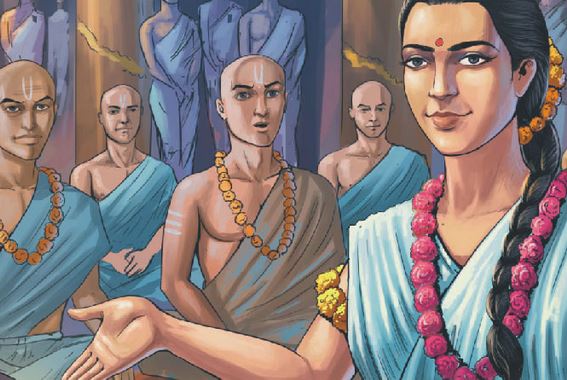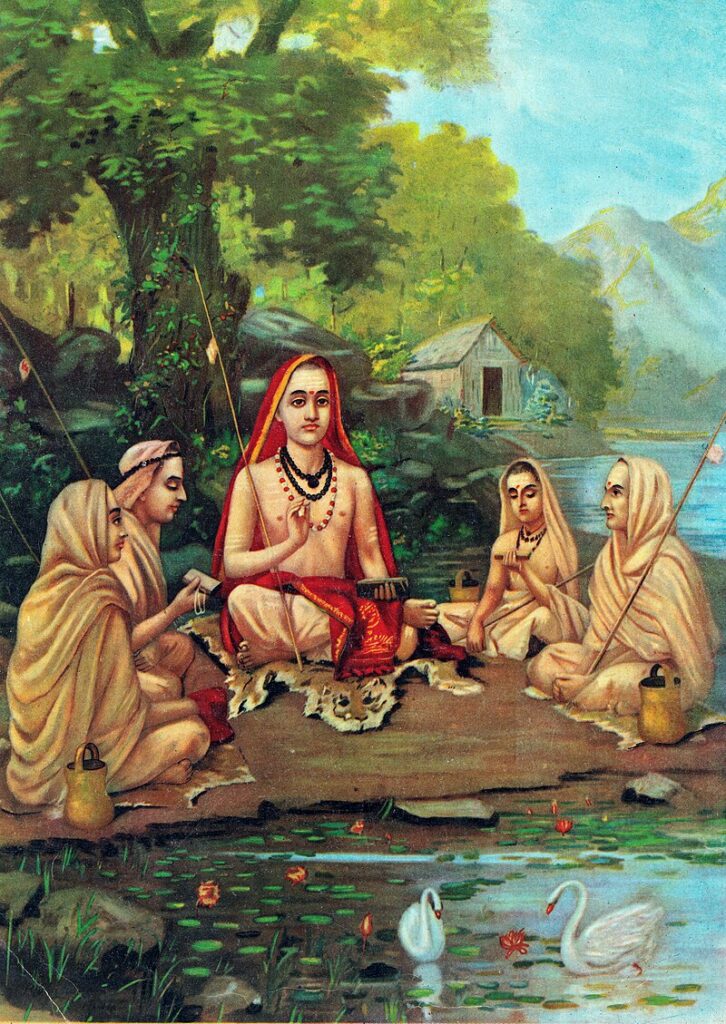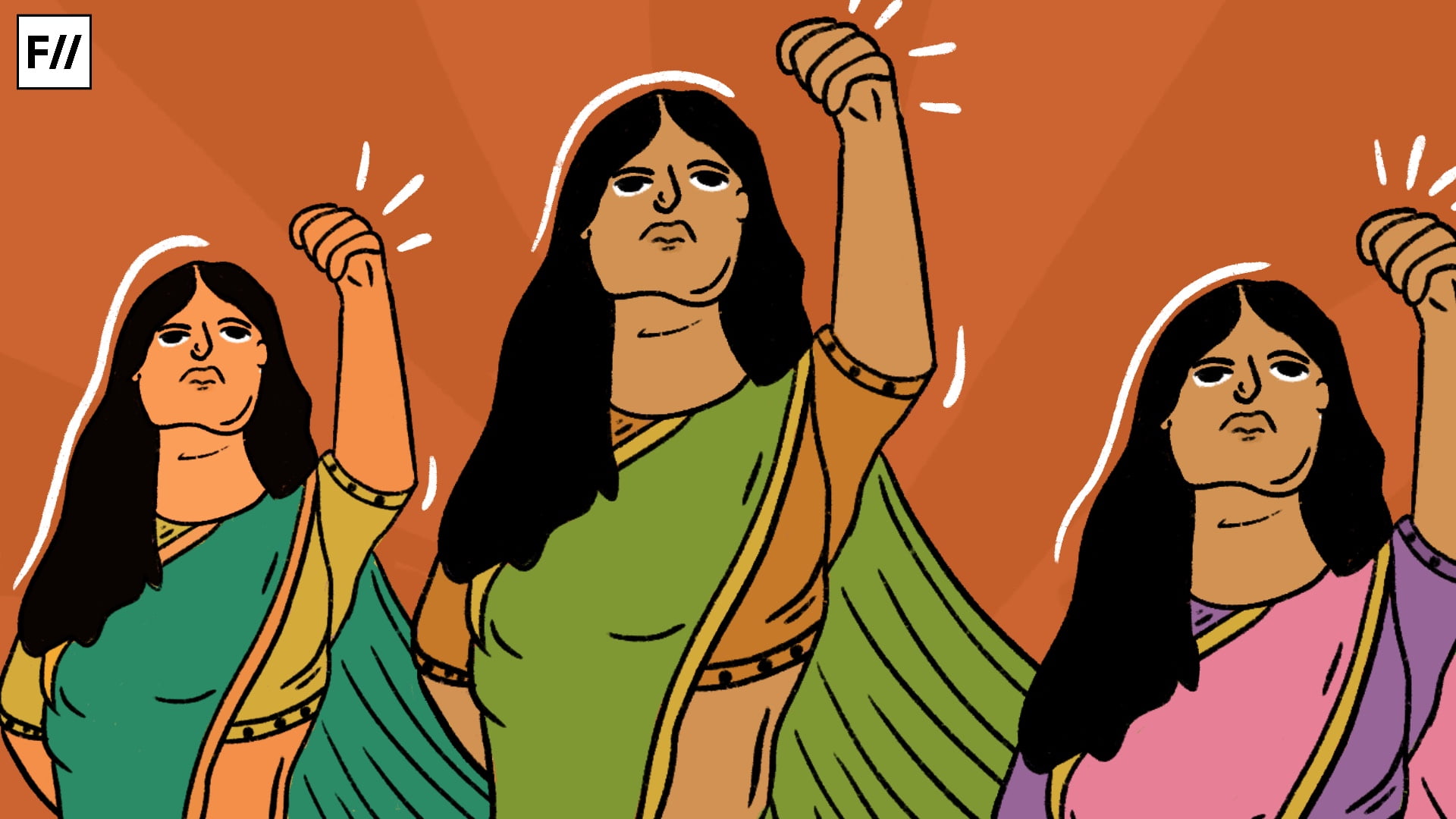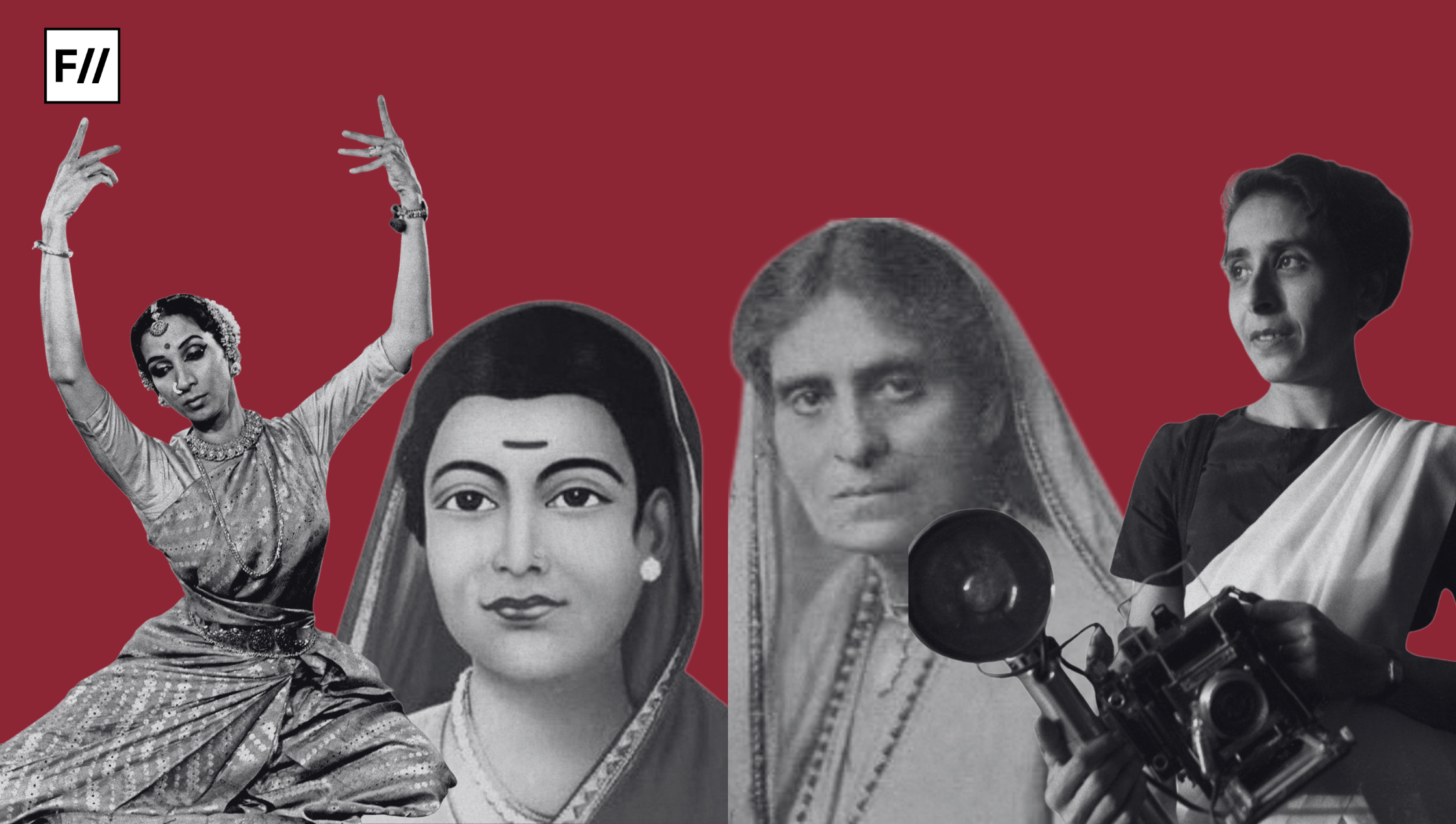In the grand tapestry of India’s rich history, there exist countless stories of valour, resilience, and empowerment that often go untold. While the annals of time may predominantly echo the achievements of male figures, it is imperative to shine a light on the remarkable contributions of women who defied societal norms, challenged oppressive systems, and left an indelible mark on the fabric of our nation.
From ancient sages and warrior queens to poets and philosophers, the pages of Indian history are replete with tales of extraordinary women whose names have faded into obscurity.
Vishpala: A warrior princess of unyielding valour
In the sacred texts of the Rigveda, amid the hymns and verses that echo through the corridors of time, the legend of Vishpala stands as a testament to the indomitable spirit of the warrior princess. Contrary to the conventional portrayal of Vedic women as passive and submissive, Vishpala stands as a beacon of courage and determination, challenging societal norms and transcending physical limitations.
The saga of Vishpala’s prowess unfolds through a fateful encounter on the battlefield where she confronts her adversary with unwavering determination. Despite losing her leg in the heat of battle, Vishpala’s spirit remains unbroken and fate grants her a gift that will transform her into a formidable warrior – a prosthetic leg forged from iron. This divine intervention not only restores her mobility but also elevates her to the ranks of legendary warriors, marking the first known instance of the use of prosthetic limbs in ancient history.
Throughout the Rigveda, Vishpala’s exploits are celebrated as she emerges as a fearless defender of her kingdom, standing side by side with her male counterparts on the battlefield. Her bravery knows no bounds as she confronts her opponents with courage and skill, undaunted by societal prejudices or physical obstacles.
In Vishpala’s legend, we find a profound reflection of the timeless virtues of duty, courage, and resilience. Despite dire challenges and constant physical hardships, she remains steadfast in her commitment to uphold the honour of her kingdom and protect her people. Her unwavering determination serves as an inspiration to all, transcending the boundaries of time and space.
Vishpala’s story resonates as a timeless ode to the strength of the human spirit, reminding us that true greatness lies not in the absence of obstacles, but in the unwavering determination to overcome them. Through her legend, she embodies the essence of Vedic valour, embodying the eternal principles of duty, honour, and courage that continue to guide man’s pursuit of greatness.
Gargi Vachaknavi: Lighting the path of feminism in ancient India
In the annals of history, the name of Gargi Vachaknavi shines brightly as one of the first symbols of feminism and philosophical brilliance. Born in the 9th-7th century BC in the northern kingdoms of India near Mithila, she not only practised philosophy but embodied it in her very nature. A revered figure in Vedic literature, Gargi, also known as Rishi Gargi, left an indelible mark on the philosophical landscape of her time and beyond.

Her presence in the Rigveda, especially in its Grihya Sutra, signifies her respected position in the intellectual sphere. Through deep meditation and deep introspection, she revealed the sacred mantras that enriched the Vedic corpus. Her philosophical insights, considered noble and profound, are immortalised in the Chandogya Upanishads, which reverberate through the corridors of time.
In the court of King Janaka of Mithila, Gargi’s radiance rose to new heights when she was recognised as one of the Navaratnas or nine gems in his court. Her participation in the Rajasuya yagna (a ritual where a king is anointed) with renowned sages and scholars epitomised her respected position in society. It was in the midst of this gathering of learned giants that Gargi engaged in a riveting intellectual discourse with the renowned sage Yajnavalkya.
Their dialogue traversed the realms of metaphysics, delving into the essence of reality and the essence of existence itself. In an environment dominated by male philosophers, Gargi fearlessly asked probing questions that momentarily baffled even the erudite Yajnavalkya. Undeterred by warnings and undaunted by the patriarchal norms of her time, Gargi’s relentless pursuit of truth and knowledge soared to its zenith.
The height of her intellectual prowess was shown in her deep exploration of the structure of the universe, challenging Yajnavalkya with a cosmological metaphor that underscored the interconnectedness of the universe. Her exploration of the heavenly realms, the stars, the sun, and the moon, showed the depth of her wisdom and the breadth of her intellectual curiosity.
However, the crescendo in her thinking and questioning was seen when she asked him
“सा होवाच यदूर्ध्वं याज्ञवल्क्य दिवो यदवाक्पृथिव्या यदन्तरा द्यावापृथिवी इमे यद्भूतं च भवच्च भविष्यच्चेत्याचक्षते कस्मिंस्तदोतं च प्रोतं चेति ॥.”
She asks Yajnavalkya what pervades ‘above the heavens, below the earth and in between the two (heaven and earth) about which they say it was, is and will be (exist).’ She also asks about what is it upon which the ‘world is woven back and forth.’
The height of her intellectual prowess was shown in her deep exploration of the structure of the universe, challenging Yajnavalkya with a cosmological metaphor that underscored the interconnectedness of the universe. Her exploration of the heavenly realms, the stars, the sun, and the moon, showed the depth of her wisdom and the breadth of her intellectual curiosity.
In Gargi Vachaknavi, we find not only a beacon of feminism but also a personality of philosophical thought, whose legacy continues to inspire and illuminate the path of enlightenment. Her unwavering search for truth, fearless questioning of established norms, and deep insight into the mysteries of existence make her a timeless symbol of intellectual prowess and female empowerment.
Ubhaya Bharati: Shattering gender norms through intellectual courage
Ubhaya Bharati stands as a shining figure in the annals of Hindu civilisation, her intellect and courage lighting the way for gender equality and intellectual emancipation. Amidst the cultural tapestry of ancient Mithila, now located in Bihar, lived a remarkable couple whose scholarly pursuits and devotion to the Vedic way of life left an indelible mark on philosophical discourse. Mandana Mishra and his wife Ubhaya Bharati were not only homemakers; they were erudite scholars who deftly navigated the intricacies of Vedic texts and rituals.

Their residence became a centre of intellectual exchange and attracted the attention of notables from far and wide. One such figure was Adi Shankaracharya, the renowned Advaita Vedanta philosopher and theologian. Guided by the respected scholar Kumaril Bhatt, Shankaracharya went to Mithila to engage in a debate with Mandana Mishra, a formidable opponent known for his deep understanding of Mimamsa philosophy.
However, it was Ubhaya Bharati, wife of Mandan Mishra, who emerged as the key figure in this intellectual showdown. Despite societal norms that often relegated women to the domestic sphere, Ubhaya Bharati’s exceptional wisdom and command of the scriptures earned her recognition as an arbiter in the philosophical duel between Shankaracharya and her husband.
As the debate unfolded, it became clear that Ubhaya Bharati was not merely a passive observer but an active participant in the search for truth. When Mandana Mishra conceded defeat, it was Ubhaya Bharati who boldly challenged Shankaracharya and explored areas considered taboo for women in traditional society.
Shankaracharya Ubhaya Bharati’s fearless interrogation of topics such as the Grihastha ashram and the science of sex shattered gender stereotypes and underscored her unwavering commitment to intellectual inquiry. By demanding equal status in philosophical discourse, she paved the way for a more inclusive approach to knowledge, transcending the limitations of gender norms.
Princess Hemalekha: The embodiment of feminist enlightenment
The character of Princess Hemalekha in the ancient Indian text “Tripura Rahasya” serves as a profound representation of feminist ideals and spiritual liberation. In the narrative, she holds philosophical dialogues with her husband, Prince Hemachuda, and the sage Dattatreya, questioning societal norms and advocating female autonomy and intellectual equality.
Throughout, Hemalekha questions traditional gender roles, the dynamics of marriage, and societal expectations placed on women. Her bold exploration of these themes embodies the essence of feminism as she asserts the rights and freedoms of women to make their own decisions and pursue their intellectual and spiritual aspirations.
In addition, Hemalekh’s spiritual journey symbolises liberation not only from social constraints but also from worldly attachments. By engaging in deep conversations with Dattatreya, she overcomes the limitations of her outer identity and attains spiritual enlightenment, or moksha, when she realises her oneness with the ultimate reality, Brahman.
One particularly insightful quote from Hemalekha sums up her wisdom and spiritual depth: People understood the universe in space but did not consider space itself. This statement reflects her deep understanding of the interconnectedness of all things and the importance of recognising the underlying essence behind superficial differences.
In her roles as guru to her husband, and as a mother-in-law, Princess Hemalekha gently guides them along the path of Brahma Gyan, or knowledge of Brahman. Through her teaching and example, she demonstrates the transformative power of inner realisation and the potential for liberation from societal constraints, including gender discrimination.
Uncovering the forgotten stories of courageous women in Indian history—from warrior princess Vishpala to philosophical sage Gargi, intellectual pioneer Ubhaya Bharati to enlightened princess Hemalekha—reveals a diverse tapestry of resilience and empowerment. Their stories challenge the notion of male-dominated history and inspire future generations to embrace courage, resilience and intellectual curiosity. Their legacy reminds us of the importance of challenging norms, advocating for equality and seeking truth in shaping a more inclusive society.
References:
- ADS1 – The Story of Hemalekha and Hemachuda | PDF (slideshare.net)
- (PDF) Indian feminism from a Vedic lens: A case study of Gargi-Yagnavalkya verbal duel (researchgate.net)
- Vedic Women Warriors: Vishpala and Anasuya – The Jaipur Dialogues
- The importance of Ubhaya Bharati (indiatimes.com)
- Who is Rishi Gargi Vachaknavi? – Devvrat Yoga Sangha
- Association with the Wise, a Story from Tripura Rahasya: – Yoga Prana Vidya




